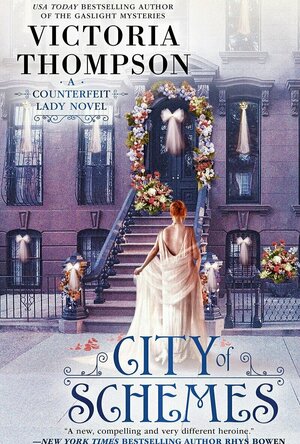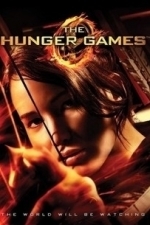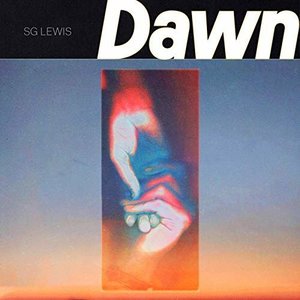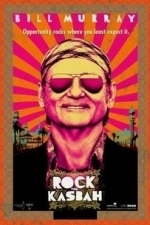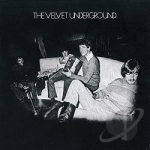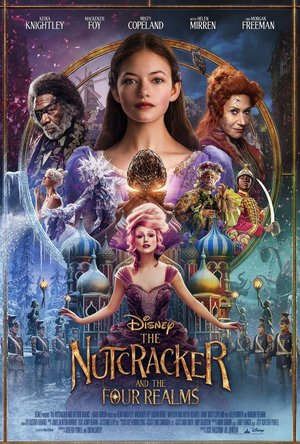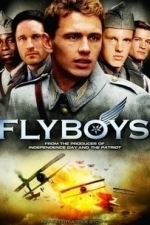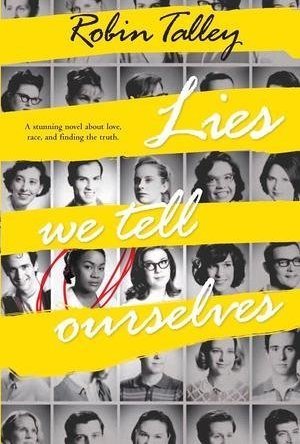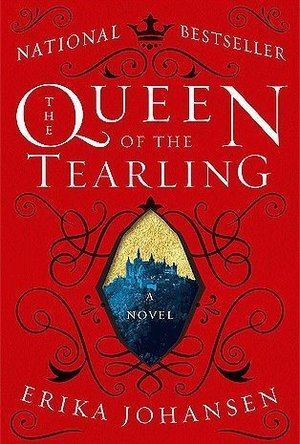Search
Search results
Mark @ Carstairs Considers (2346 KP) rated City of Schemes in Books
Jan 6, 2021
Facing the Past While Planning for the Future
Reformed conwoman Elizabeth Miles is getting ready for her wedding to Gideon Bates. They have tried to keep their engagement quiet, but it still shows up in the papers. That brings Oscar Thornton back into their lives, insisting that Elizabeth refund the money that he feels she owes him. Can they stop him once and for all? Meanwhile, Gideon has reconnected with one of his friends who has returned home from World War I. Logan Carsten had become engaged to a young woman before he left, but he fell in love with someone else while stationed in France. He intends to honor his engagement, but then, he hears from this Frenchwoman asking for his help in coming in America. Elizabeth thinks something more is going on. Can she also help Logan?
If you haven’t read this series yet, I recommend you read it from the beginning. This book includes some call back to earlier adventures as well as a major spoiler for the previous book. All of that is wonderful for fans, however, as it allows the characters to grow in some great ways. I love Elizabeth, Gideon, and the rest of the regulars, so I enjoyed spending time with them again. Since this is more a caper than a traditional mystery, I enjoy watching the plot unfold in different ways, and it kept me engaged the entire time. I did have an issue with one part of the climax; if Elizabeth’s motives for her actions had been built into the story a bit more, I probably would have been okay with it. I also enjoyed the humor early in the book. Once again, author Victoria Thompson has written a book that pulled me in and only let me go when I reached the final page.
If you haven’t read this series yet, I recommend you read it from the beginning. This book includes some call back to earlier adventures as well as a major spoiler for the previous book. All of that is wonderful for fans, however, as it allows the characters to grow in some great ways. I love Elizabeth, Gideon, and the rest of the regulars, so I enjoyed spending time with them again. Since this is more a caper than a traditional mystery, I enjoy watching the plot unfold in different ways, and it kept me engaged the entire time. I did have an issue with one part of the climax; if Elizabeth’s motives for her actions had been built into the story a bit more, I probably would have been okay with it. I also enjoyed the humor early in the book. Once again, author Victoria Thompson has written a book that pulled me in and only let me go when I reached the final page.
David McK (3562 KP) rated The Hunger Games (2012) in Movies
Jun 5, 2022
So, the pop-culture behometh that was (is?) 'The Hunger Games'.
It's a trilogy of Young Adult (I hate that term! Us older adults can like them, too ...) novels, made into a quartet of movies.
This is the first in both the novels and the movie series.
While, yes, I have read those novels - I'm not sure, but maybe after originally having watched this film back in 2012 or so? - I can't really remember the full ins and outs of the plot - except the obvious! - although I am sure that, as always, liberties will have been taken, as movies and prose are two distinct mediums.
Set in the future dystopia of Panem (post apocalyptic America?), once every year the 12 districts are forced to randomly choose and send two teenagers - one boy and a girl - to The Capitol to participate in a televised fight to the death inside a giant man-made arena. Katniss Everdeen is one of those chosen from District 12, volunteering to take her sister's place when her sisters name is chosen during her first year of mandatory participation. The film (like what I remember from the book) draws a clear distinction between those from The Capitol - who view this all as a grand sport, and who are very definitely the haves of this world against those from the various districts (the have nots), while also taking the opportunity to make a point about how those in power can treat and abuse those without.
Yes, it's violent.
Yes, I'm sure some of the bloodier parts of the book were cut in order to get the PG-13 rating it does.
Yes, Jennifer Lawrence shines in the lead role
Yes, that *is* Chris Hemsworth's (otherwise known as the MCU's Thor) brother Liam.
It's a trilogy of Young Adult (I hate that term! Us older adults can like them, too ...) novels, made into a quartet of movies.
This is the first in both the novels and the movie series.
While, yes, I have read those novels - I'm not sure, but maybe after originally having watched this film back in 2012 or so? - I can't really remember the full ins and outs of the plot - except the obvious! - although I am sure that, as always, liberties will have been taken, as movies and prose are two distinct mediums.
Set in the future dystopia of Panem (post apocalyptic America?), once every year the 12 districts are forced to randomly choose and send two teenagers - one boy and a girl - to The Capitol to participate in a televised fight to the death inside a giant man-made arena. Katniss Everdeen is one of those chosen from District 12, volunteering to take her sister's place when her sisters name is chosen during her first year of mandatory participation. The film (like what I remember from the book) draws a clear distinction between those from The Capitol - who view this all as a grand sport, and who are very definitely the haves of this world against those from the various districts (the have nots), while also taking the opportunity to make a point about how those in power can treat and abuse those without.
Yes, it's violent.
Yes, I'm sure some of the bloodier parts of the book were cut in order to get the PG-13 rating it does.
Yes, Jennifer Lawrence shines in the lead role
Yes, that *is* Chris Hemsworth's (otherwise known as the MCU's Thor) brother Liam.
Bong Mines Entertainment (15 KP) rated Dawn by SG Lewis in Music
Jun 26, 2019
SG Lewis is a London-based songwriter, producer, and multi-instrumentalist. Not too long ago, he released his “Dawn” EP ahead of his two high profile festival appearances at North Coast Music Festival and Jay-Z’s Made In America, and a headlining tour in September.
His 6-track project, released via Casablanca and Republic Records, is the third and final chapter of his three-part concept album, entitled, Dusk, Dark, Dawn.
“I forgive, I forget all the words I’ve never spoken. I’ve been lost, I’ve been hurt, I’ve been blamed. Sitting here on the floor feels like I’ve been high forever. Coming down, falling hard, all in vain.” – lyrics
‘Easy Loving You’ tells a bittersweet tale of a heavy-hearted young man who struggles to cope with the pain after suffering an emotional breakup with his girlfriend.
Looking back in hindsight, he realizes that she wasn’t an easy person to love, and their problematic relation was doomed from the start because they were oceans apart.
Later, he admits that both of them are broken and in need of emotional repair. Also, it hurts every time he remembers that they are no longer together.
‘Easy Loving You’ contains a gloomy storyline, heartfelt vocals, and melodic instrumentation flavored with sentimental and electro-R&B elements.
“Blue, in your eyes as I fall for the night. But you’ll fade away when morning light is rising. Leave a taste lingering on my skin. Have I been here before? You touch me and I fall. I close my eyes on the horizon, me and you. I can see the lights inside my mind are glowing blue.” – lyrics
Not too long ago, SG Lewis released the psychedelic, Rainbow Road tinged music video for his EP opener, entitled, “Blue”.
The likable tune was inspired by the countless amount of hours that Lewis spent in airports while touring over the last year.
Get acquainted with his music by streaming his “Dawn” EP via Spotify.
“‘Dawn’ is the final phase of the 3-part album I have spent the last 18 months working on. ‘Dawn’ captures the energy of the end of the night, the intimacy of the quieter moments, and the emotions felt after the energetic highs of ‘Dark’. It is a more introspective phase, and is the most personal music I think I have ever released.” – SG Lewis
It’s been an impressive year for SG Lewis, with SOLD-OUT shows across North America, Asia, and Europe.
Not too long ago, Dark‘s lead single, “Hurting”, hit No.1 on the Billboard Dance/Mix Show Airplay Chart.
Also, Lewis played a prime slot at this year’s Coachella and continues to cement his status as not one of London’s hottest new talents, capable of making a splash on both sides of the Atlantic.
His 6-track project, released via Casablanca and Republic Records, is the third and final chapter of his three-part concept album, entitled, Dusk, Dark, Dawn.
“I forgive, I forget all the words I’ve never spoken. I’ve been lost, I’ve been hurt, I’ve been blamed. Sitting here on the floor feels like I’ve been high forever. Coming down, falling hard, all in vain.” – lyrics
‘Easy Loving You’ tells a bittersweet tale of a heavy-hearted young man who struggles to cope with the pain after suffering an emotional breakup with his girlfriend.
Looking back in hindsight, he realizes that she wasn’t an easy person to love, and their problematic relation was doomed from the start because they were oceans apart.
Later, he admits that both of them are broken and in need of emotional repair. Also, it hurts every time he remembers that they are no longer together.
‘Easy Loving You’ contains a gloomy storyline, heartfelt vocals, and melodic instrumentation flavored with sentimental and electro-R&B elements.
“Blue, in your eyes as I fall for the night. But you’ll fade away when morning light is rising. Leave a taste lingering on my skin. Have I been here before? You touch me and I fall. I close my eyes on the horizon, me and you. I can see the lights inside my mind are glowing blue.” – lyrics
Not too long ago, SG Lewis released the psychedelic, Rainbow Road tinged music video for his EP opener, entitled, “Blue”.
The likable tune was inspired by the countless amount of hours that Lewis spent in airports while touring over the last year.
Get acquainted with his music by streaming his “Dawn” EP via Spotify.
“‘Dawn’ is the final phase of the 3-part album I have spent the last 18 months working on. ‘Dawn’ captures the energy of the end of the night, the intimacy of the quieter moments, and the emotions felt after the energetic highs of ‘Dark’. It is a more introspective phase, and is the most personal music I think I have ever released.” – SG Lewis
It’s been an impressive year for SG Lewis, with SOLD-OUT shows across North America, Asia, and Europe.
Not too long ago, Dark‘s lead single, “Hurting”, hit No.1 on the Billboard Dance/Mix Show Airplay Chart.
Also, Lewis played a prime slot at this year’s Coachella and continues to cement his status as not one of London’s hottest new talents, capable of making a splash on both sides of the Atlantic.
Hazel (1853 KP) rated Capturing Jasmina (India's Street Kids #1) in Books
Dec 17, 2018
<i>This eBook was provided by the publisher via NetGalley in exchange for an honest review</i>
Kimberly Rae draws attention to the ongoing trafficking of children in India in her young adult novel <i>Capturing Jasmina</i>. Jasmina was only ten when her father sold both her and her brother Samir to a man promising safety and good education. In reality the siblings end up in a sweatshop slaving over clothes to be sold in America. After three years they manage to escape only to be trafficked a second time. Eventually Jasmina and Samir are separated and Jasmina becomes a street kid.
Whilst living on the streets Jasmina encounters a Christian missionary, Asha, rescuing women from brothels by either offering them a safe place to live or at the very least spiritually, by teaching them about God and Jesus. Intrigued Jasmina follows Asha who then offers to help her too. After having her childhood robbed from her, it seems like Jasmina, with the help of those who trust in God, will get back on her feet again.
Despite being a short novel, Rae paints a contrasting image to what the western world is used to. Jasmina finds the concept of a simple toilet baffling. It is not until you hear or see what is happening to innocent people in other parts of the world that you realize there are so many things in life you take for granted.
<i>Capturing Jasmina</i> emphasizes how difficult it is to escape once trafficked. In these situations people belong to everyone but themselves. They have no freedom and running away can cause more problems than it solves. The novel also shows what Christians can do to help. Although no one can completely solve the problems, the tiniest piece of aid they can provide is a step in the right direction.
It was slightly disappointing that we do not find out what happened to Samir once he was separated from his sister. Jasmina’s first person narrative makes it clear that what she wants most is to be reunited with her family. In a way, although there is a positive ending, not yet finding her brother makes it clear that there cannot always be happy endings. It is not possible to save everyone.
Written from a young teenagers point of view makes this book suitable for ages twelve and older. Christians will appreciate the biblical references however there is not too much religion for non-believers or those of other religions to get offended by.
Kimberly Rae draws attention to the ongoing trafficking of children in India in her young adult novel <i>Capturing Jasmina</i>. Jasmina was only ten when her father sold both her and her brother Samir to a man promising safety and good education. In reality the siblings end up in a sweatshop slaving over clothes to be sold in America. After three years they manage to escape only to be trafficked a second time. Eventually Jasmina and Samir are separated and Jasmina becomes a street kid.
Whilst living on the streets Jasmina encounters a Christian missionary, Asha, rescuing women from brothels by either offering them a safe place to live or at the very least spiritually, by teaching them about God and Jesus. Intrigued Jasmina follows Asha who then offers to help her too. After having her childhood robbed from her, it seems like Jasmina, with the help of those who trust in God, will get back on her feet again.
Despite being a short novel, Rae paints a contrasting image to what the western world is used to. Jasmina finds the concept of a simple toilet baffling. It is not until you hear or see what is happening to innocent people in other parts of the world that you realize there are so many things in life you take for granted.
<i>Capturing Jasmina</i> emphasizes how difficult it is to escape once trafficked. In these situations people belong to everyone but themselves. They have no freedom and running away can cause more problems than it solves. The novel also shows what Christians can do to help. Although no one can completely solve the problems, the tiniest piece of aid they can provide is a step in the right direction.
It was slightly disappointing that we do not find out what happened to Samir once he was separated from his sister. Jasmina’s first person narrative makes it clear that what she wants most is to be reunited with her family. In a way, although there is a positive ending, not yet finding her brother makes it clear that there cannot always be happy endings. It is not possible to save everyone.
Written from a young teenagers point of view makes this book suitable for ages twelve and older. Christians will appreciate the biblical references however there is not too much religion for non-believers or those of other religions to get offended by.
Gareth von Kallenbach (980 KP) rated Rock the Kasbah (2016) in Movies
Aug 6, 2019
Music is a language that transcends race, gender, age, and nationality. It is timeless. It is transformative. Music has the power to shape and redefine culture. In Rock the Kasbah, Bill Murray plays Richie Lanz, a washed up Rock manager who seeks to bring one of his acts to Afghanistan as part of the USO tour. Within the first day of arrival, his plans are unraveled as his singer (Zooey Deschanel) panics and runs off with his money and passport in order to return back to America.
After meeting a myriad of characters (Bruce Willis, Kate Hudson. Danny McBride) in Kabul, he is presented with a new opportunity to introduce the world to a true talent. He discovers a young Pashtun girl with an amazing voice who dreams of being able to compete on “Afghan Star,” a musical competition show similar to “American Idol.” Cultural norms forbid her from singing and participating in the competition which demonstrate the complexity of Afghan culture, history, and politics. Understanding the threat to himself and Salima (Leem Lubany), Richie arranges for her to appear on the show, defying traditions and customs.
The film itself is a decent adaptation of the real story captured in the documentary Afghan Star which examines the life of Setara who must go into hiding because of her appearance in the competition. Rock the Kasbah has moments of genuine humor which fully utilizes Bill Murray’s true talents. Unfortunately, there are points where the plot and the storyline does not seem to fit together seamlessly. One great aspect of the film is its use of music to demonstrate the reach that it has across cultural lines. The love of music and artistic expression which had been severely restricted during the years of Taliban rule and Mujahedeen influence survived and is emblematic of how the people and the culture is much more complex and relatable than many would assume. This film goes beyond a story of a young singer trying to express herself and a manager trying to reclaim the glory of years ago. It is about the culture, history, and political framework of Afghanistan and the Afghan people.
It promotes them in a more positive light without relegating them to being a monolithic culture and people. It provides more insight into the circumstances that many of the people both in the cities and the tribal regions deal with. Audiences will be satisfied Rock the Kasbah as it is a musical and comedic showcase. They may even find themselves singing “Wild World” long after the credits roll.
After meeting a myriad of characters (Bruce Willis, Kate Hudson. Danny McBride) in Kabul, he is presented with a new opportunity to introduce the world to a true talent. He discovers a young Pashtun girl with an amazing voice who dreams of being able to compete on “Afghan Star,” a musical competition show similar to “American Idol.” Cultural norms forbid her from singing and participating in the competition which demonstrate the complexity of Afghan culture, history, and politics. Understanding the threat to himself and Salima (Leem Lubany), Richie arranges for her to appear on the show, defying traditions and customs.
The film itself is a decent adaptation of the real story captured in the documentary Afghan Star which examines the life of Setara who must go into hiding because of her appearance in the competition. Rock the Kasbah has moments of genuine humor which fully utilizes Bill Murray’s true talents. Unfortunately, there are points where the plot and the storyline does not seem to fit together seamlessly. One great aspect of the film is its use of music to demonstrate the reach that it has across cultural lines. The love of music and artistic expression which had been severely restricted during the years of Taliban rule and Mujahedeen influence survived and is emblematic of how the people and the culture is much more complex and relatable than many would assume. This film goes beyond a story of a young singer trying to express herself and a manager trying to reclaim the glory of years ago. It is about the culture, history, and political framework of Afghanistan and the Afghan people.
It promotes them in a more positive light without relegating them to being a monolithic culture and people. It provides more insight into the circumstances that many of the people both in the cities and the tribal regions deal with. Audiences will be satisfied Rock the Kasbah as it is a musical and comedic showcase. They may even find themselves singing “Wild World” long after the credits roll.
Brian Eno recommended Velvet Underground by The Velvet Underground in Music (curated)
Bob Mann (459 KP) rated The Nutcracker and the Four Realms (2018) in Movies
Sep 28, 2021
A fantasy that’s glossy and beautiful to look at.
Before the heavyweight juggernaut of “Mary Poppins Returns” arrives at Christmas, here’s another Disney live action feature to get everyone in the festive spirit.
The Plot.
It’s Victorian London and Young Clara (Mackenzie Foy) lives with her father (Matthew Macfadyen), her older sister Louise (Ellie Bamber) and her younger brother Fritz (Tom Sweet). It’s Christmas and the family are having a hard time as they are grieving the recent death of wife and mother Marie (Anna Madeley). Like her mother, Clara has an astute mind with an engineering bias and is encouraged in this pursuit by her quirky inventor godfather, Drosselmeyer (Morgan Freeman). At his fabled Christmas ball, Clara asks for his help in accessing a gift Clara’s mother has bequeathed to her. This leads Clara on a magical adventure to a parallel world with four realms, where everything is not quite peace and harmony.
The Review.
This is a film that visually delights from the word go. The film opens with a swooping tour of Victorian London (who knew the Disney castle was in the capital’s suburbs?!) via Westminster bridge and into the Stahlbaum’s attic. It’s a spectacular tour-de-force of special-effects wizardry and sets up the expectation of what’s to come. For every scene that follows is a richly decorated feast for the eyes. Drosselmeyer’s party is a glorious event, full of extras, strong on costume design and with a rich colour palette as filmed by Linus Sandgren (“La La Land“). When we are pitched into the Four Realms – no wardrobe required – the magical visions continue.
The film represents a Narnia-esque take on the four compass-point lands of Oz, and on that basis it’s a bit formulaic. But the good vs evil angles are more subtley portrayed. Of the Four Realms leaders, Keira Knightley as Sugar Plum rather steals the show from the others (played by Richard E. Grant, Eugenio Derbez and Helen Mirren). Mirren in particular is given little to do.
What age kids would this be suitable for? Well, probably a good judge would be the Wizard of Oz. If your kids are not completely freaked out by the Wicked Witch of the West and the flying monkeys, then they will probably cope OK with the scary bits of the “Realm of Entertainment”. Although those who suffer from either musophobia or (especially) coulrophobia might want to give it a miss! All kids are different though, and the “loss of the mother” is also an angle to consider: that might worry and upset young children. It is definitely a “PG” certificate rather than a “U” certificate.
Young people who also enjoy ballet (I nearly fell into a sexist trap there!) will also get a kick out of some of the dance sequences, which are “Fantasia-esque” in their presentation and feature Misty Copeland, famously the first African American Female Principal Dancer with the American Ballet Theatre. (I have no appreciation at all for ballet, but I’m sure it was brilliant!)
As for the moral tone of the film, the female empowerment message is rather ladled on with a trowel, but as it’s a good message I have no great problem with that. I am often appalled at how lacking in confidence young people are in their own abilities. Here is a young lady (an engineer!) learning self-resilience and the confidence to be able to do anything in life she puts her mind to. Well said.
The story is rather generic – child visits a magical other world – but the screenplay is impressive given its the first-feature screenplay for Ashleigh Powell: there is an article on her approach to screenwriting that you might find interesting here.
The film is credited with two directors. This – particularly if there is also an army of screenwriters – is normally a warning sign on a film. (As a case in point, the chaotic 1967 version of “Casino Royale” had six different directors, and it shows!). Here, there clearly were issues with the filming since Disney insisted on reshoots for which the original director, Lasse Hallström, was not available. This is where the “Captain America” director Joe Johnston stepped in.
The turns.
I really enjoyed Mackenzie Foy‘s performance as Clara. Now 18, she is a feisty and believable Disney princess for the modern age. (If, like me, you are struggling to place where you’ve heard her name before, she was the young Murph in Nolan’s “Interstellar“).
Another name I was struggling with was Ellie Bamber as her sister. Ellie was excellent in the traumatic role of the daughter in the brilliant “Nocturnal Animals“, one of my favourite films of 2016. (Hopefully the therapy has worked and Ellie can sleep at night again!).
A newcomer with a big role is Jayden Fowora-Knight as the Nutcracker soldier: Jayden had a bit part in “Ready Player One” but does a great job here in a substantial role in the film. He stands out as a black actor in a Disney feature: notwithstanding the Finn character in “Star Wars”, this is a long-overdue and welcome approach from Disney.
British comedians Omid Djalili and Jack Whitehouse turn up to add some light relief, but the humour seems rather forced and not particularly fitting.
Final thoughts
I wasn’t expecting to enjoy this one much, but I did. Prinicipally because it is such a visual feast and worth going to see just for that alone: I have a prediction that this film will be nominated for production design, costume design and possible special effects.
I think kids of the right age – I would have thought 6 to 10 sort of range – will enjoy this a lot, particularly if they like dance. Young girls in particular will most relate to the lead character. For such kids, I’d rate this a 4*. The rating below reflects my rating as an adult: so I don’t think ‘drag-a-long’ parents in the Christmas holidays (if it is still on by then) will not be totally bored.
The Plot.
It’s Victorian London and Young Clara (Mackenzie Foy) lives with her father (Matthew Macfadyen), her older sister Louise (Ellie Bamber) and her younger brother Fritz (Tom Sweet). It’s Christmas and the family are having a hard time as they are grieving the recent death of wife and mother Marie (Anna Madeley). Like her mother, Clara has an astute mind with an engineering bias and is encouraged in this pursuit by her quirky inventor godfather, Drosselmeyer (Morgan Freeman). At his fabled Christmas ball, Clara asks for his help in accessing a gift Clara’s mother has bequeathed to her. This leads Clara on a magical adventure to a parallel world with four realms, where everything is not quite peace and harmony.
The Review.
This is a film that visually delights from the word go. The film opens with a swooping tour of Victorian London (who knew the Disney castle was in the capital’s suburbs?!) via Westminster bridge and into the Stahlbaum’s attic. It’s a spectacular tour-de-force of special-effects wizardry and sets up the expectation of what’s to come. For every scene that follows is a richly decorated feast for the eyes. Drosselmeyer’s party is a glorious event, full of extras, strong on costume design and with a rich colour palette as filmed by Linus Sandgren (“La La Land“). When we are pitched into the Four Realms – no wardrobe required – the magical visions continue.
The film represents a Narnia-esque take on the four compass-point lands of Oz, and on that basis it’s a bit formulaic. But the good vs evil angles are more subtley portrayed. Of the Four Realms leaders, Keira Knightley as Sugar Plum rather steals the show from the others (played by Richard E. Grant, Eugenio Derbez and Helen Mirren). Mirren in particular is given little to do.
What age kids would this be suitable for? Well, probably a good judge would be the Wizard of Oz. If your kids are not completely freaked out by the Wicked Witch of the West and the flying monkeys, then they will probably cope OK with the scary bits of the “Realm of Entertainment”. Although those who suffer from either musophobia or (especially) coulrophobia might want to give it a miss! All kids are different though, and the “loss of the mother” is also an angle to consider: that might worry and upset young children. It is definitely a “PG” certificate rather than a “U” certificate.
Young people who also enjoy ballet (I nearly fell into a sexist trap there!) will also get a kick out of some of the dance sequences, which are “Fantasia-esque” in their presentation and feature Misty Copeland, famously the first African American Female Principal Dancer with the American Ballet Theatre. (I have no appreciation at all for ballet, but I’m sure it was brilliant!)
As for the moral tone of the film, the female empowerment message is rather ladled on with a trowel, but as it’s a good message I have no great problem with that. I am often appalled at how lacking in confidence young people are in their own abilities. Here is a young lady (an engineer!) learning self-resilience and the confidence to be able to do anything in life she puts her mind to. Well said.
The story is rather generic – child visits a magical other world – but the screenplay is impressive given its the first-feature screenplay for Ashleigh Powell: there is an article on her approach to screenwriting that you might find interesting here.
The film is credited with two directors. This – particularly if there is also an army of screenwriters – is normally a warning sign on a film. (As a case in point, the chaotic 1967 version of “Casino Royale” had six different directors, and it shows!). Here, there clearly were issues with the filming since Disney insisted on reshoots for which the original director, Lasse Hallström, was not available. This is where the “Captain America” director Joe Johnston stepped in.
The turns.
I really enjoyed Mackenzie Foy‘s performance as Clara. Now 18, she is a feisty and believable Disney princess for the modern age. (If, like me, you are struggling to place where you’ve heard her name before, she was the young Murph in Nolan’s “Interstellar“).
Another name I was struggling with was Ellie Bamber as her sister. Ellie was excellent in the traumatic role of the daughter in the brilliant “Nocturnal Animals“, one of my favourite films of 2016. (Hopefully the therapy has worked and Ellie can sleep at night again!).
A newcomer with a big role is Jayden Fowora-Knight as the Nutcracker soldier: Jayden had a bit part in “Ready Player One” but does a great job here in a substantial role in the film. He stands out as a black actor in a Disney feature: notwithstanding the Finn character in “Star Wars”, this is a long-overdue and welcome approach from Disney.
British comedians Omid Djalili and Jack Whitehouse turn up to add some light relief, but the humour seems rather forced and not particularly fitting.
Final thoughts
I wasn’t expecting to enjoy this one much, but I did. Prinicipally because it is such a visual feast and worth going to see just for that alone: I have a prediction that this film will be nominated for production design, costume design and possible special effects.
I think kids of the right age – I would have thought 6 to 10 sort of range – will enjoy this a lot, particularly if they like dance. Young girls in particular will most relate to the lead character. For such kids, I’d rate this a 4*. The rating below reflects my rating as an adult: so I don’t think ‘drag-a-long’ parents in the Christmas holidays (if it is still on by then) will not be totally bored.
Gareth von Kallenbach (980 KP) rated Flyboys (2006) in Movies
Aug 14, 2019
Prior to the sinking of the Lusitania in 1915, the U.S. was mainly a spectator during what would eventually be called World War I.
At the time, the conflict that was known as “The Great War and by optimists as “The War to End all Wars” was laying waste to a generation of young men and leaving many of Europe’s nations in ruins.
With new inventions such as submarines, machine guns, and poison gas being deployed in the battlefield, hundreds of thousands were killed in the early stages of the war. One of the new inventions to see use during the war were airplanes, which had only recently been invented, but showed great potential and were quickly used by both sides for scouting and combat missions.
Looking for adventure and hoping to make a name for themselves, a handful of American men volunteered to fight in the war and some joined the Lafayette Escadrille, so they could join the fight by flying for the French.
In the new film Flyboys, James Franco stars as Blaine Rawlings, a young man fleeing his family ranch in TX after an altercation with a financier who has foreclosed on his family home. Upon arriving in France, Blaine meets other Americans including Eugene (Abdul Salis), who has left a promising career as a boxer to give something back to his adoptive nation of France since due to a more tolerant society, the color of his skin has not held him back as much as it has in
America.
Under the command of Captain Thenault (Jean Reno) the squadron is trained and eventually sent into combat against the German forces where they learn the true nature and horrors of war firsthand as they have to deal with the very high mortality rate that faces pilots and the knowledge that each time they fly into battle, may very well be their last moments.
Blaine eventually meets a local French lady named Lucienne (Jennifer Decker), a shy French lady who cares for three young children after their parents were killed when their home was hit. The fact that the dead father was also her brother is added burden for Lucienne as she worries about losing those she cares for as the war wages on.
Despite her concerns, Lucienne becomes close to Blaine even though the war is a constant threat and keeps creating distances between them, especially when the German forces advance upon the village in which she lives.
Since this is a film about aviators, there are several scenes in the film of the various missions Blaine and his comrades undertook that are rendered with a mix of CGI and vintage aircraft from the era.
In the air, the action is engrossing and entertaining, but on the ground, much of the film drags as it has every cliché and war movie staple in the book thrown in as well as characters that are not well defined, and lack anything to make the audience really connect with them.
This is a real shame as there are some good points to the film, but at just over two hours running length, there is not enough chemistry or development with the characters to truly make the audience care about them or their fates.
The aerial scenes are well done, but in many ways remind me of Howard Hughes classic “Hell’s Angels” and vintage classics “Dawn Patrol” and“The Blue Max”
As it stands, the best thing going for the film are the flight sequences but the slow pacing, numerous clichés and bland characters keeps Flyboys grounded.
At the time, the conflict that was known as “The Great War and by optimists as “The War to End all Wars” was laying waste to a generation of young men and leaving many of Europe’s nations in ruins.
With new inventions such as submarines, machine guns, and poison gas being deployed in the battlefield, hundreds of thousands were killed in the early stages of the war. One of the new inventions to see use during the war were airplanes, which had only recently been invented, but showed great potential and were quickly used by both sides for scouting and combat missions.
Looking for adventure and hoping to make a name for themselves, a handful of American men volunteered to fight in the war and some joined the Lafayette Escadrille, so they could join the fight by flying for the French.
In the new film Flyboys, James Franco stars as Blaine Rawlings, a young man fleeing his family ranch in TX after an altercation with a financier who has foreclosed on his family home. Upon arriving in France, Blaine meets other Americans including Eugene (Abdul Salis), who has left a promising career as a boxer to give something back to his adoptive nation of France since due to a more tolerant society, the color of his skin has not held him back as much as it has in
America.
Under the command of Captain Thenault (Jean Reno) the squadron is trained and eventually sent into combat against the German forces where they learn the true nature and horrors of war firsthand as they have to deal with the very high mortality rate that faces pilots and the knowledge that each time they fly into battle, may very well be their last moments.
Blaine eventually meets a local French lady named Lucienne (Jennifer Decker), a shy French lady who cares for three young children after their parents were killed when their home was hit. The fact that the dead father was also her brother is added burden for Lucienne as she worries about losing those she cares for as the war wages on.
Despite her concerns, Lucienne becomes close to Blaine even though the war is a constant threat and keeps creating distances between them, especially when the German forces advance upon the village in which she lives.
Since this is a film about aviators, there are several scenes in the film of the various missions Blaine and his comrades undertook that are rendered with a mix of CGI and vintage aircraft from the era.
In the air, the action is engrossing and entertaining, but on the ground, much of the film drags as it has every cliché and war movie staple in the book thrown in as well as characters that are not well defined, and lack anything to make the audience really connect with them.
This is a real shame as there are some good points to the film, but at just over two hours running length, there is not enough chemistry or development with the characters to truly make the audience care about them or their fates.
The aerial scenes are well done, but in many ways remind me of Howard Hughes classic “Hell’s Angels” and vintage classics “Dawn Patrol” and“The Blue Max”
As it stands, the best thing going for the film are the flight sequences but the slow pacing, numerous clichés and bland characters keeps Flyboys grounded.
Hazel (1853 KP) rated Lies We Tell Ourselves in Books
Dec 17, 2018
<i>This ARC was provided by the publisher via NetGalley in exchange for an honest review</i>
<i>Lies We Tell Ourselves</i> by Robin Talley is a realistic tale about the beginning of the integration of coloured people into white schools in late 1950s America. In Virginia it is 1959 and ten Negros are beginning their first day at Jefferson Highschool. The experience is narrated from one of the ten, Sarah’s, perspective. In other parts of the novel the voice changes to that of Linda, a particularly nasty white girl, who is one of countless students opposed to integration.
Although many young people will have been taught about the black civil right movement it is still shocking to read about the horrible things they had to endure. By writing in the first person, Talley encourages the reader to try to understand how they would feel in a similar situation. Sarah and her friends instantly become the victims of verbal and physical abuse that members of authority turn a blind eye to.
To Sarah, Linda is a nasty spoilt bully who, although does not join in with the taunting and abuse, is as bad as the rest of them. Through reading Linda’s account it becomes clear that her behaviour has a lot to do with her home life, in particularly with her father’s attitude towards her. After being forced to partner Sarah for a French project Linda begins to question why there is so much emphasis on skin colour, however not wanting to be shunned by her own friends she keeps these thoughts to herself.
Sarah is also struggling to come to terms with her sexual preference for girls. It has been drilled into her that these thoughts are a sin. She hides her true feelings from everyone and constantly berates herself mentally for being “unnatural”. But it turns out she may not be the only one with these thoughts.
The lies referred to in the title are not the blatant or harmful lies but rather the lies the characters believe or even want to believe. Each chapter begins with a lie that reflects what is occurring in the novel at that time; for example “There’s no need to be afraid” and “I don’t care what they think of me.” This is an interesting way of telling the story as it emphasizes Sarah’s determination to keep going despite what she is subjected to. It also reveals the mental struggles she faces. On the other hand the lies disclose Linda’s conflicting feelings towards the South’s current situation and segregation laws.
Although not a religious novel, each part begins with the title of a Christian hymn. It was the norm for everyone to go to church and, despite the separate churches, was something black and white people did. Sarah and Linda have faith in God yet they both use the bible’s teachings for opposing arguments. The religious aspect also highlights Sarah’s self-hatred and belief that she has fallen into sin.
Unfortunately in today’s world there are still issues with racism and homophobia however after reading <i>Lies We Tell Ourselves</i> it is evident that these situations have vastly improved, at least in the Western world, since the 1950s. Without children such as Sarah going through these horrible experiences nothing would have changed. There would still be separate schools, slavery and inaccurate opinions about race inequality. America has a lot to thank these brave students who were the first to create mixed race schools.
Overall this is a brilliant book. Well written and realistic, it really draws the reader in to the characters’ stories. Although <i>Lies We Tell Ourselves</i> is a work of fiction, it is historically accurate and can teach a lot about America’s history to young adults today.
<i>Lies We Tell Ourselves</i> by Robin Talley is a realistic tale about the beginning of the integration of coloured people into white schools in late 1950s America. In Virginia it is 1959 and ten Negros are beginning their first day at Jefferson Highschool. The experience is narrated from one of the ten, Sarah’s, perspective. In other parts of the novel the voice changes to that of Linda, a particularly nasty white girl, who is one of countless students opposed to integration.
Although many young people will have been taught about the black civil right movement it is still shocking to read about the horrible things they had to endure. By writing in the first person, Talley encourages the reader to try to understand how they would feel in a similar situation. Sarah and her friends instantly become the victims of verbal and physical abuse that members of authority turn a blind eye to.
To Sarah, Linda is a nasty spoilt bully who, although does not join in with the taunting and abuse, is as bad as the rest of them. Through reading Linda’s account it becomes clear that her behaviour has a lot to do with her home life, in particularly with her father’s attitude towards her. After being forced to partner Sarah for a French project Linda begins to question why there is so much emphasis on skin colour, however not wanting to be shunned by her own friends she keeps these thoughts to herself.
Sarah is also struggling to come to terms with her sexual preference for girls. It has been drilled into her that these thoughts are a sin. She hides her true feelings from everyone and constantly berates herself mentally for being “unnatural”. But it turns out she may not be the only one with these thoughts.
The lies referred to in the title are not the blatant or harmful lies but rather the lies the characters believe or even want to believe. Each chapter begins with a lie that reflects what is occurring in the novel at that time; for example “There’s no need to be afraid” and “I don’t care what they think of me.” This is an interesting way of telling the story as it emphasizes Sarah’s determination to keep going despite what she is subjected to. It also reveals the mental struggles she faces. On the other hand the lies disclose Linda’s conflicting feelings towards the South’s current situation and segregation laws.
Although not a religious novel, each part begins with the title of a Christian hymn. It was the norm for everyone to go to church and, despite the separate churches, was something black and white people did. Sarah and Linda have faith in God yet they both use the bible’s teachings for opposing arguments. The religious aspect also highlights Sarah’s self-hatred and belief that she has fallen into sin.
Unfortunately in today’s world there are still issues with racism and homophobia however after reading <i>Lies We Tell Ourselves</i> it is evident that these situations have vastly improved, at least in the Western world, since the 1950s. Without children such as Sarah going through these horrible experiences nothing would have changed. There would still be separate schools, slavery and inaccurate opinions about race inequality. America has a lot to thank these brave students who were the first to create mixed race schools.
Overall this is a brilliant book. Well written and realistic, it really draws the reader in to the characters’ stories. Although <i>Lies We Tell Ourselves</i> is a work of fiction, it is historically accurate and can teach a lot about America’s history to young adults today.
Erika Kehlet (21 KP) rated The Queen of the Tearling in Books
Feb 19, 2018
I finished this audiobook a while ago and put off writing the review because I couldn't decide how I felt about it. I went back and forth between 2 and 3 stars for a while. There were several things about the story that really bothered me (making me feel like it only deserved 2 stars), but then there were times when I was interested enough to think that I would need to read book two to see what happens. When all was said and done, I did decide I might read the next book at some point, so three stars it is.
A note about setting
The book sounds like any other fantasy novel. This story actually takes place in a future where for some reason (we are never told exactly what happened), a group of people have fled America and moved to a new land (again, we don't know how there was a new land available for them to colonize...) leaving all technology and modern conveniences behind them.
What bothered me about the book
Is it young adult or not? Occasionally the language, violence, or other crudeness seemed inappropriate for all but the most mature of teens, but then Kelsea would act like a nineteen year old girl, she spent an awful lot of time obsessing over her plain appearance, how handsome each of her guards happened to be, etc..., so I could never really tell.
Where / when is it? We get bits and pieces mentioning "the crossing", but why? What happened? Is there still an America with technology somewhere? Where are the main characters now? If the Capital is New London, are they anywhere near old London? How is there magic? And who is this enemy, this evil Mort/Red Queen who seems to have an abundance of it? I can go on and on here, and the lack of details or explanation about this world they are living in is my biggest complaint.
What I liked about the book
Kelsea, when she could remember not to worry about her plain face or how greasy her hair looked, actually had a decent moral compass and wanted to do what was right for her new-found kingdom, not just what was easy or convenient for her. She was stubborn and idealistic, and I admired those traits in her. I even eventually grew to like some of her guards, the Mace and Pen in particular, as they finally learned to respect her and some of her ideas near the end of the story.
Will you like this book?
I wish I could say yes, but the best I can do is maybe. If you go into it knowing that you are not going to understand exactly where this world is, how it came about, or why, and that doesn't bother you, then you just might. I will give book two a try to see if there are more details forthcoming, but not right away.
A note about setting
The book sounds like any other fantasy novel. This story actually takes place in a future where for some reason (we are never told exactly what happened), a group of people have fled America and moved to a new land (again, we don't know how there was a new land available for them to colonize...) leaving all technology and modern conveniences behind them.
What bothered me about the book
Is it young adult or not? Occasionally the language, violence, or other crudeness seemed inappropriate for all but the most mature of teens, but then Kelsea would act like a nineteen year old girl, she spent an awful lot of time obsessing over her plain appearance, how handsome each of her guards happened to be, etc..., so I could never really tell.
Where / when is it? We get bits and pieces mentioning "the crossing", but why? What happened? Is there still an America with technology somewhere? Where are the main characters now? If the Capital is New London, are they anywhere near old London? How is there magic? And who is this enemy, this evil Mort/Red Queen who seems to have an abundance of it? I can go on and on here, and the lack of details or explanation about this world they are living in is my biggest complaint.
What I liked about the book
Kelsea, when she could remember not to worry about her plain face or how greasy her hair looked, actually had a decent moral compass and wanted to do what was right for her new-found kingdom, not just what was easy or convenient for her. She was stubborn and idealistic, and I admired those traits in her. I even eventually grew to like some of her guards, the Mace and Pen in particular, as they finally learned to respect her and some of her ideas near the end of the story.
Will you like this book?
I wish I could say yes, but the best I can do is maybe. If you go into it knowing that you are not going to understand exactly where this world is, how it came about, or why, and that doesn't bother you, then you just might. I will give book two a try to see if there are more details forthcoming, but not right away.
